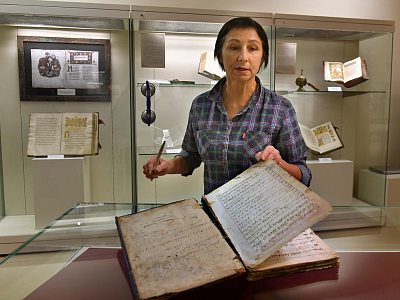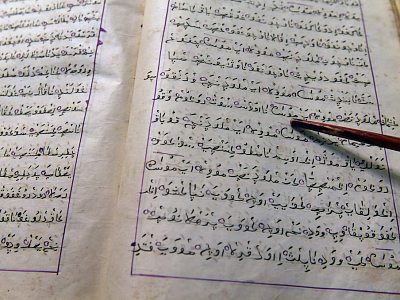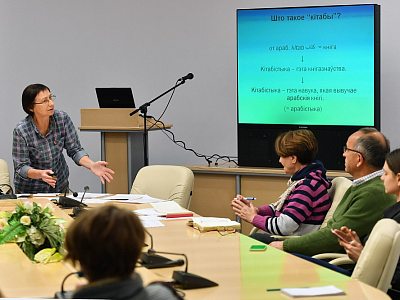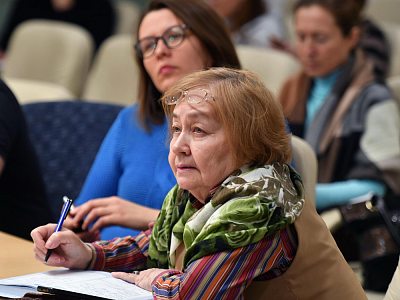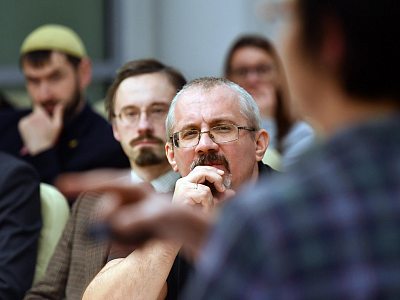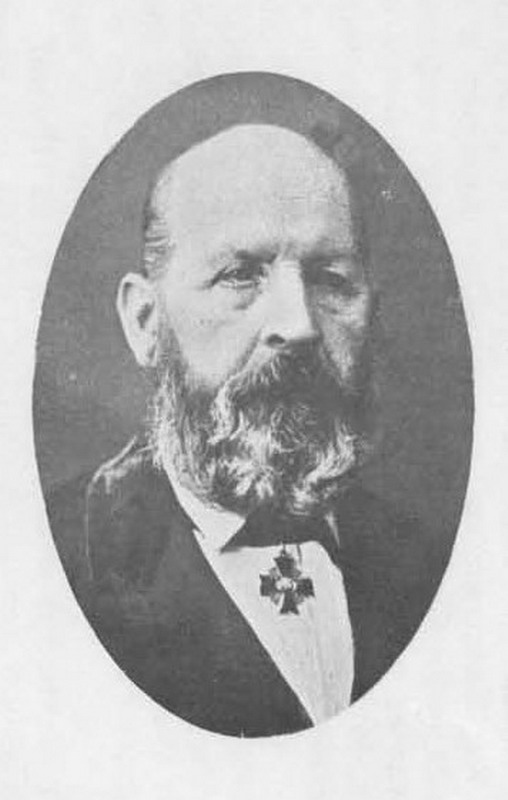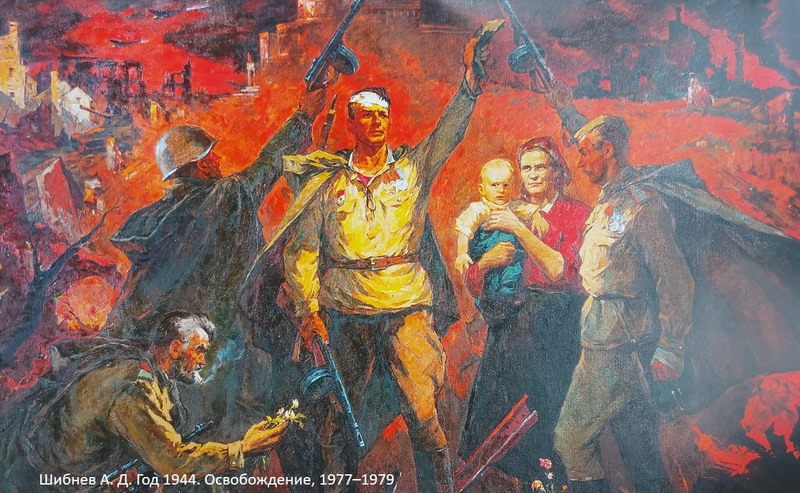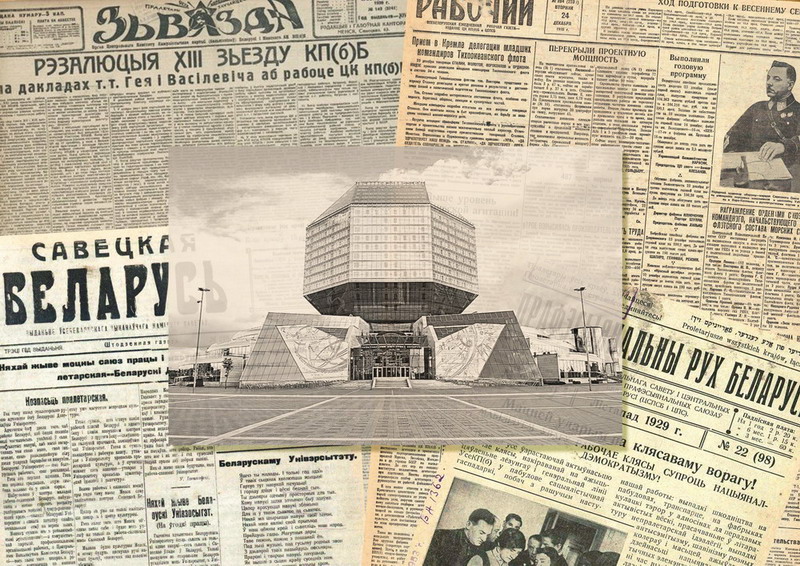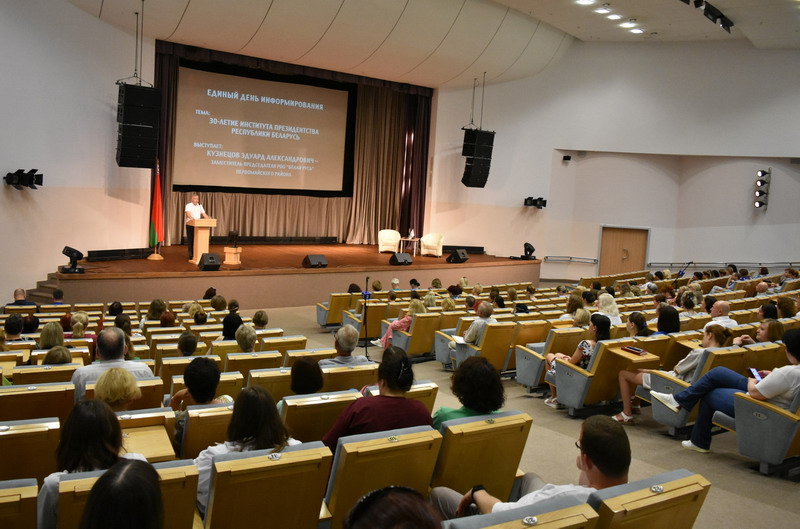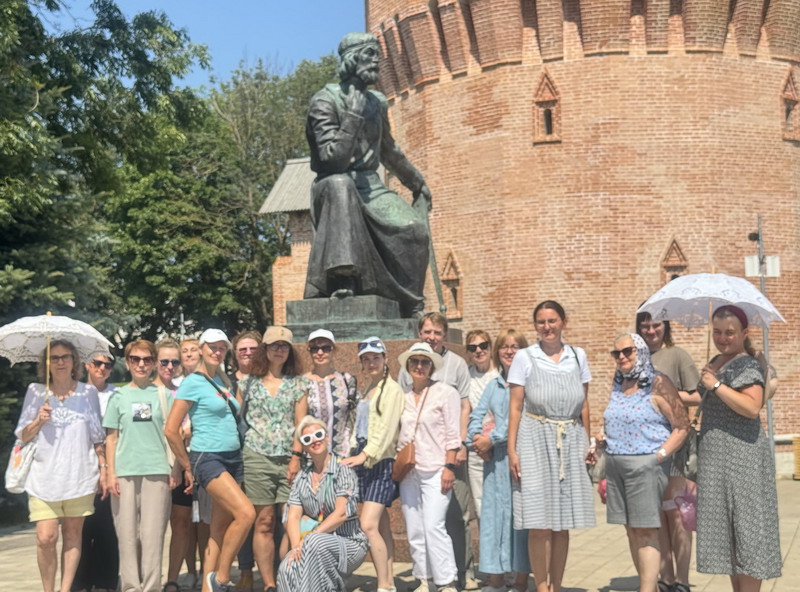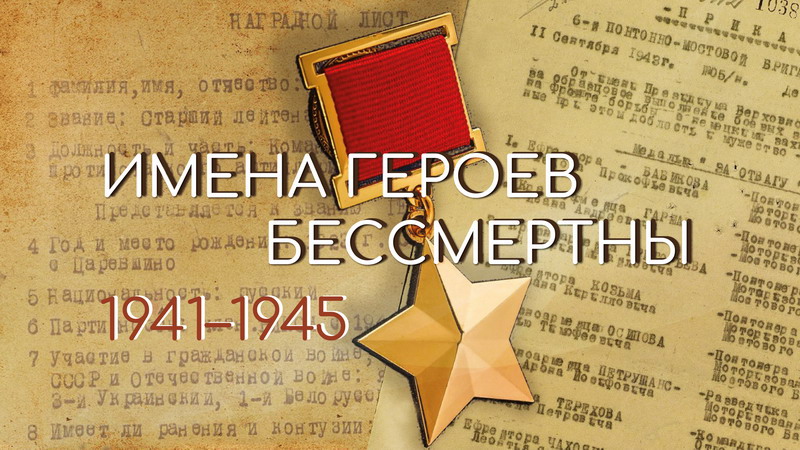A workshop focused on the study of Kitabi took place in the library, on December 4. The event was part of the series “Kitabi, the Unique Manuscripts and Monuments of Literacy.” Kitabi are the manuscripts created by Belarusian Tatars, who lived in the multi-confessional and multi-ethnic Commonwealth.
Kitabistika (in Russian: китабистика) is a discipline studying the manuscripts of Belarusian Tatars. Kitabi had first come to scientists’ attention in the 17ер century. It is known that one manuscript (Hamaily) belonged to the famous Wroclaw Orientalist, Andreas Acoluthus. Not later than the early 18th century, it was described by German scholar Georg Jacob Kehr in Leipzig. In 1723, Heinrich Leberecht Fleischer, a German Orientalist, took the description in his catalog of Oriental manuscripts (1838), but mistakenly identified it as Crimean-Tatar. Another manuscript (the Koran, 1682) in 1740 was in the collection of professor of the Kiev Theological Academy, Simon Todorovski, who studied the Oriental languages. After his appointment as a bishop of Pskov, he moved his library to the city. The Koran is kept in Pskov to this day.
The first academic publications, which directly refer to the manuscripts of Belarusian Tatars, appeared in the 19th century. In 1840, Theodore Narbut in his History of the Lithuanian People refers to the Tatar Kitabi. In 1857, professor of St. Petersburg State University, Orientalist A. Mukhlinsky in his Study of the Origin and Status of Lithuanian Tatars not simply refers to Tatar religious books, but also quotes excerpts from them. Unfortunately, this work contained some mistakes, repeated by later authors.
Kitabi were “rediscovered” in the early 20th century. After the article by I. Lutskevich, dedicated to a Kitab from the village of Forty Tatars, a number of publications appeared: L. Tsvyetkov, V. Volsky, Ya. Stankevich, E. Karsky, V. Lastovsky. Despite the inevitable (as the research process had just began) errors, these authors made sensible comments and important findings, especially concerning the value of Tatar manuscripts in the history of the Belarusian language.
The event moderator: Irina Synkova, PhD, Associate Professor of the Department of Oriental Languages, the Faculty of International Relations of the Belarusian State University.
All interested are welcome. Free admission.
Date: December 18, 2019.
Time: 18.00–19.30.
Location: educational technology hall (346).
Contact telephones: (+375 17) 293 27 81, (+375 17) 293 27 82, (+375 44) 579 39 07.
Bibliology Research Department
Read more about the first workshop on the study of Kitabi.



